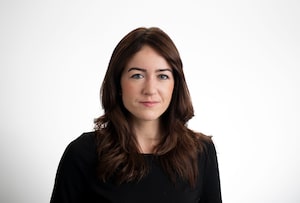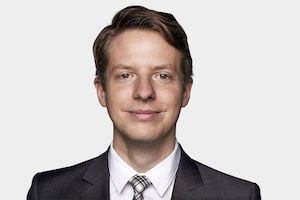
From the left, the Moscow-appointed heads of Kherson region Vladimir Saldo and Zaporizhzhia region Yevgeny Balitsky, Russian President Vladimir Putin, Donetsk separatist leader Denis Pushilin and Lugansk separatist leader Leonid Pasechnik, after signing treaties illegally annexing four regions of Ukraine Russian troops occupy, at the Kremlin in Moscow on Sept. 30.MIKHAIL METZEL/AFP/Getty Images
Russian President Vladimir Putin proclaimed that four regions in Ukraine will become part of Russia, an illegal land grab that dramatically escalates Russia’s war in Ukraine and further isolates Russia from the rest of the world.
“I want the Kyiv authorities and their real masters in the West to hear me, so that they remember this. People living in Luhansk and Donetsk, Kherson and Zaporizhzhia are becoming our citizens. Forever,” Mr. Putin told a crowd of officials gathered to hear his speech at the Georgievsky Hall of the Grand Kremlin Palace.
Mr. Putin’s claim to more than 15 per cent of Ukraine’s territory is the largest annexation in Europe since the Second World War. It has been strongly rejected by Western countries and even many of Russia’s close allies. The move marks a turning point – and a particularly dangerous moment – in Russia’s war on Ukraine.
Russia has made it clear that it will defend annexed land as its own, and has suggested that could include the use of nuclear weapons. Mr. Putin reiterated that point on Friday, saying Russia will defend its land with all the powers and means at its disposal.
Mr. Putin’s address also took aim at the West. He said the Western world is not free, that it is “hypocritical and full of lies,” and that the “dictatorship” of Western elites is directed against all societies. He said the ideology of the West shares features with Satanism.
There can be no end to this war that leaves Putin in power
He also said that the United States is the only country in the world that has twice used nuclear weapons. The destruction of the Japanese cities of Hiroshima and Nagasaki, he said, had set “a precedent.”
After announcing his attempt to illegally seize Ukrainian land, Mr. Putin called on Kyiv to “cease fire immediately” and return to the negotiating table. But he suggested that no concessions would be made in the Russian-occupied areas.
Ukraine, in turn, announced it was submitting an application for NATO membership. Ukrainian President Volodymyr Zelensky appeared to dismiss any notion of negotiation with Mr. Putin, saying in a public address that Ukraine is “ready for a dialogue with Russia, but already with another president of Russia.”
He also vowed to liberate all of Ukraine from Russia, which he described as “the enemy not only of Ukraine, but also of life itself, humanity, law and truth.” Mr. Zelensky said Russia “wants to rewrite history and redraw borders with murders, torture, blackmail and lies. Ukraine will not allow that.”
Before announcing the annexation, Russia held hastily staged referendums on joining Russia in each of the occupied regions. Ukrainian residents were forced to vote by armed soldiers.
The move to take Ukrainian territory follows Russian setbacks in the war in Ukraine. Even as Mr. Putin spoke, Russia’s troops were on the verge of encirclement in Lyman, their main garrison in the north of Donetsk, one of the provinces over which Moscow is now claiming dominion. Russian defeat could pave the way for the Ukrainian army to recapture swaths of land that Mr. Putin has now declared to be part of Russia.
In Washington, Foreign Affairs Minister Mélanie Joly and U.S. Secretary of State Antony Blinken said after a Friday morning meeting at State Department headquarters that they would not back down from assisting Ukraine despite Mr. Putin’s threat to use nuclear weapons.
“Nobody wins when it comes to nuclear so, obviously, this is unthinkable. But you have to be ready,” Ms. Joly said. “We will not change the course of our actions … we will continue to work with the U.S. on this, and our European counterparts.”
Mr. Blinken said the U.S. monitors for Russian actions that would be necessary for them to deploy nukes. “We have not seen them take these actions,” he said.
“This kind of loose talk about nuclear weapons is irresponsible, and is something that we take very seriously,” he said. “We plan against every possible scenario, including this one.”
Canada, the U.S. and other allies of Ukraine announced a new round of sanctions, including on Russian oligarchs, companies helping Mr. Putin’s invasion and Russian representatives in occupied parts of Ukraine.
Mr. Blinken said the U.S.’s “support to Ukraine will continue” and that Ukraine can use American military hardware “as Ukraine sees fit.” He said he would not ask the country to curb its efforts to fight back against Russia in response to Mr. Putin’s threats.
“This territory remains Ukraine’s, it will always be part of Ukraine. We will never recognize the annexation of this territory,” Mr. Blinken said. “Ukraine has every right to defend all of its territory and to take back territory that has been illegally seized from it.”
He was more circumspect about Ukraine’s request to join NATO, which would oblige the U.S., Canada and the rest of the alliance to defend Kyiv from Moscow’s attacks, a major escalation that could turn the war into a global conflict.
“We strongly support NATO’s open door, we strongly support bringing in countries that seek to join,” Mr. Blinken said. “There’s a process for doing that.”
Both top diplomats reiterated earlier condemnation for Mr. Putin’s “sham” referendums.
Ms. Joly said, “Vladimir Putin will stop at nothing to consolidate his power” with what she called a “crude attempt” to formalize Russia’s “conquests.”
“It has no legitimacy and will never be recognized. Donetsk, Luhansk, Kherson and Zaporizhzhia will remain Ukrainian territory,” she said.
The European Union firmly condemned the annexation on Friday, saying it would never recognize the “illegal” referendums held in the occupied regions. It added that it would tighten its sanctions on Moscow. The European Council, which includes the 27 EU member states, said in a statement on behalf of its members that Russia’s undermining of the international order was putting global security at risk.
“We do not and will never recognize the illegal ‘referenda’ that Russia has engineered as a pretext for this further violation of Ukraine’s independence, sovereignty and territorial integrity,” the statement said.
With a report from Reuters
 Janice Dickson
Janice Dickson Adrian Morrow
Adrian Morrow